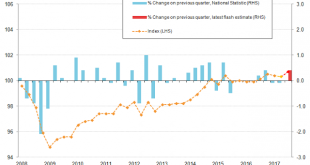Who decides what statistical offices measure and how they measure it? And what are the implicit values embedded in these decisions? Recently, the ILO issued a new manual on measuring productivity. Below, I´ll discuss the questions posed. But for starters, it is essential to realize that economists measure monetary productivity, not physical productivity, which leads to problems with ever-changing prices. This will be part of the discussion. The ILO (International Labour Organization)...
Read More »Alienated labour and disposable time
By Tom Walker Econospeak Book proposal: Marx’s Fetters and the Realm of Freedom: a remedial reading — part 2.4 Marx’s remarkable, yet largely neglected statement that “[t]he whole development of wealth rests on the creation of disposable time” and his subsequent analysis of the relationship between disposable time, superfluous products, and surplus value suggests an alternative analysis of alienation that identifies disposable time itself as...
Read More »Socially Ambivalent Labour Time VII: Capital volume 1, chapters one and three
EconoSpeak: Socially Ambivalent Labour Time VII: Capital volume 1, chapters one and three. Sandwichman, July 30, 2021 Afterword to the Second German Edition [of Das Kapital, Buch 1] (1873): I must start by informing the readers of the first edition about the alterations made in the second edition. One is struck at once by the clearer arrangement of the book. Additional notes are everywhere marked as notes to the second edition. The following...
Read More »A Financial View of Labour Markets
We are used to thinking of workers as free agents who sell their labour in a market place. They bid a price, companies offer a lower price and the market clearing rate is somewhere between the two. Free market economics, pure and simple. But actually that's not quite right. The financial motivations of workers and companies are entirely different. To a worker, the financial benefit from getting a job is an income stream, which can be ended by either side at any time. But to a company, a...
Read More »A Financial View of Labour Markets
We are used to thinking of workers as free agents who sell their labour in a market place. They bid a price, companies offer a lower price and the market clearing rate is somewhere between the two. Free market economics, pure and simple. But actually that's not quite right. The financial motivations of workers and companies are entirely different. To a worker, the financial benefit from getting a job is an income stream, which can be ended by either side at any time. But to a company, a...
Read More »Why targeting productivity is a bad idea
Last week I attended a workshop entitled "Enhancing the Bank of England Toolkit," hosted by the Progressive Economy Forum. Presented at the workshop, and underpinning most of the debate, was this report from GFC Economics and Clearpoint Advisers, which was written for the Labour Party and first issued last June. The report was widely criticised at the time, as one of its authors ruefully observed in the introduction to the presentation. Nonetheless, the authors presented it unamended.The...
Read More »Why labour markets don’t clear
This post originally appeared on Pieria in July 2014. Roger Farmer has a blogpost in which he shows that labour markets don’t clear. Specifically, employment varies with the business cycle, whereas the labour force participation rate and hours worked only show long-term secular trends. During cyclical downturns, therefore, we must conclude that there is more labour available than there are jobs. New Keynesians say that the reason for this is sticky wages. If only nominal wages could fall...
Read More »Richard Murphy—A challenge to Simon Wren-Lewis on modern monetary theory and Labour’s fiscal credibility rule
Richard Murphy challenges Simon Wren-Lewis to put up or shut up. So my question is, I suppose, inevitable. What I would like Simon to do is show how he and Jonathan Portes have written, as he claims, a rule that delivers a real-world political economic solution (because that is what Labour's rule is, because it is not an academic paper) that is the same as modern monetary theory. And I want him to show this even though: i) The rule he has written works subject to financial constraints, and...
Read More »More on productivity
The ONS's latest flash productivity estimate is rather good. Productivity in Quarter 3 2017 was up by 0.9% on the previous quarter. Here's what ONS has to say about it: Output per hour growth in Quarter 3 2017 was the result of a 0.4% increase in gross value added (GVA) (using the preliminary gross domestic product (GDP) estimate) accompanied by a 0.5% fall in total hours worked (using the latest Labour Force Survey data). This fall in total hours was driven primarily by a 0.5% fall in...
Read More »The Class War is Back
In a manner of speaking. See this splendid piece here by Paul Embery:Paul Embery, “The Demonisation of the Working-Class Shames Our Nation,” HuffPost Politics, 1 July, 2016.Except the new class war is being waged against the working class by an arrogant, metropolitan, snobbish, middle-class leftist elite that rules the left at the moment, with hordes of young university-educated leftists in tow. The elite is, to a great extent, influenced by economic neoliberalism (think: New Labour).The...
Read More » Heterodox
Heterodox







